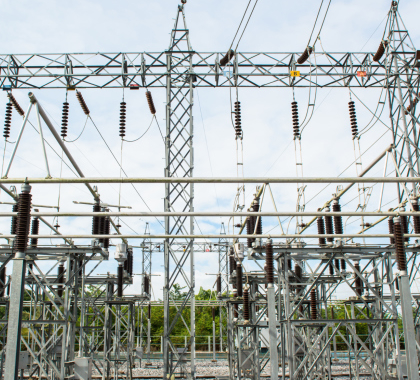States with restructured electric power markets where consumers and businesses have some choice of electric power providers have saved the country more than $3 billion in energy costs annually, a new study sponsored by the University of Chicago’s Energy Policy Institute reports.
The study, titled “Imperfect Markets versus Imperfect Regulation in U.S. Electricity Generation,” compares states and regions with traditional state-established, regulated monopoly utility power systems to states that have restructured their electric power industries to allow multiple utilities and electric power traders to buy and sell electric power in competitive markets across service areas. The study’s author sought to determine whether allowing competitive purchasing and trading of electric power produced savings.
The study found in competitive power markets, utilities shift generation from higher- to lower-cost units more effectively than those in traditional, regulated monopoly markets, resulting in more than $3 billion in savings annually. In addition, utilities in deregulated electric power markets use their least-efficient power plants 10 percent less often, resulting in a 20 percent cost savings compared to states with traditional, regulated monopolies.
Studying Efficiencies
Steve Cicala, the author of the study and a professor of public policy at the University of Chicago, said what prompted his interest in electric deregulation is the lack of comprehensive evidence concerning the comparative efficiencies of regulated versus deregulated markets.
“Using auctions instead of a command-and-control approach to determine who produces electric power are dramatically different approaches to organizing an industry, yet we did not have comprehensive evidence on which system managed to deliver electricity at a lower cost,” Cicala said. “That struck me as a first-order question, and it was worth knowing the answer, whichever way it happened to turn out.
“It was entirely possible at the outset that losses from the exertion of market power would exceed any gains from increased trade across areas or plant availability,” said Cicala. “Instead, regulators have been vigilant to prevent this sort of behavior, providing us with markets that deliver electricity at lower costs than they had in the past.”
Subsidies Remain
Rob Bradley Jr., CEO of the Institute for Energy Research, says the savings from energy restructuring could be even greater if states would end renewable-energy mandates.
“The findings of the study are intuitive and Economics 101. Going from monopoly to competition will lower consumer prices,” Bradley said. “We saw this with airlines, trucking, and railroads several decades ago, and we are seeing it with electricity today.
“A word of warning is warranted, however, as many states that legislated competition for power have included mandates for qualifying renewable generation, thus helping consumers on the one hand and penalizing them on the other,” Bradley said. “A free-market world would remove these special subsidies, as well as consider ending public utility regulation entirely at the state level for electricity.”
Michael McGrady ([email protected]) writes from Colorado Springs, Colorado.




